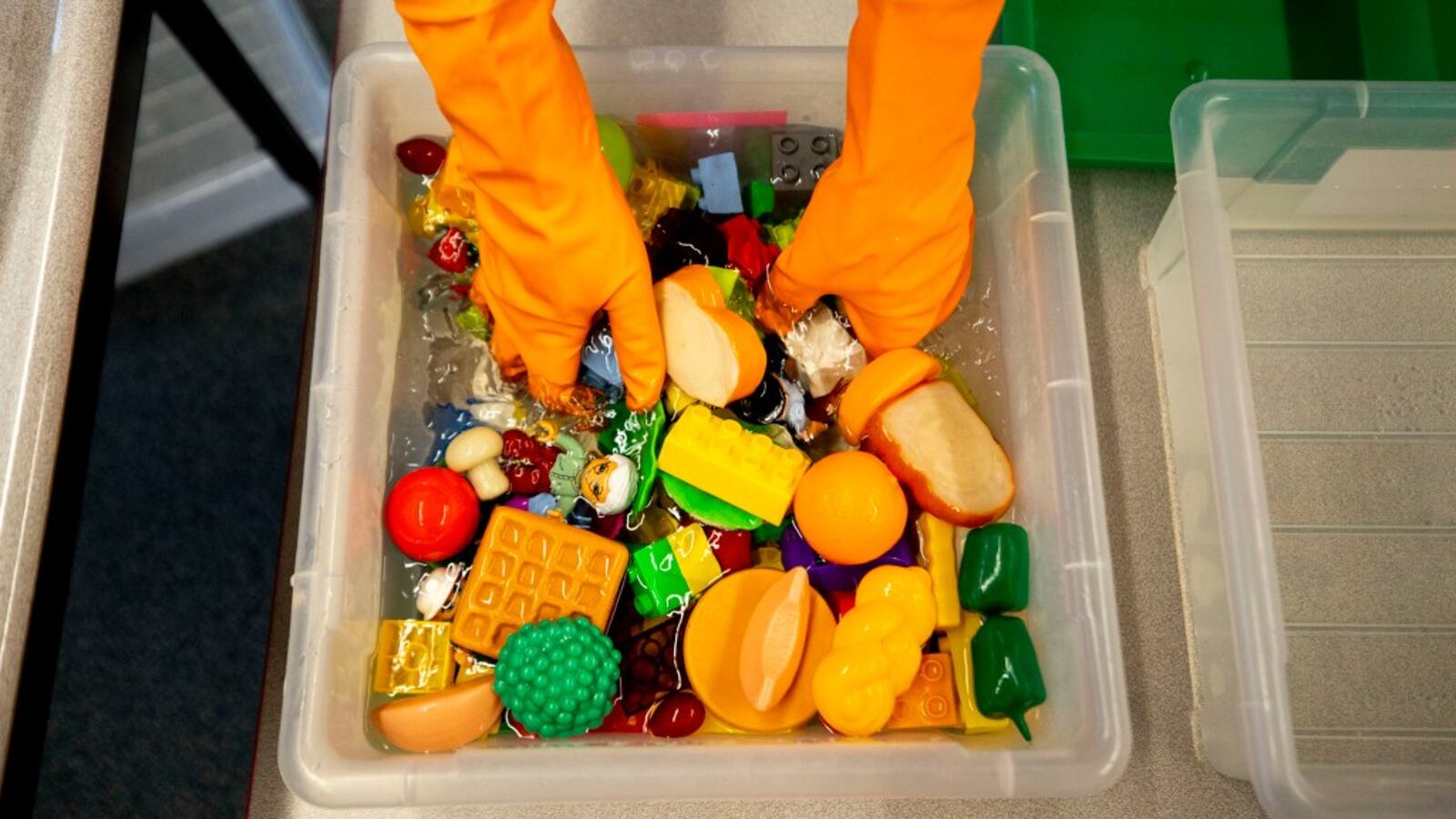Citing the needs of working parents, especially frontline health care workers, state agencies called on Colorado child care centers to stay open even after dozens of Colorado school districts announced closures to slow the spread of the new coronavirus.
In a letter sent Saturday afternoon, after a number of child care providers in Denver already announced they would close temporarily, state officials said some child care providers “are taking the school closures as a cue for them to also proactively close. We are not requesting or encouraging this approach.”
A second letter, sent Sunday evening, acknowledged the guidance to stay open “may be confusing,” but said child care centers are generally smaller than K-12 schools and college campuses where the risk of virus transmission is higher. It also asked for help identifying open slots that could be used for workers in essential emergency jobs.
The letters, sent by the Colorado Department of Human Services and the Colorado Department of Public Health and Environment, reflect the difficult tradeoffs involved in any decision to close schools, given that many parents still need to work. But the state guidance left some child care providers who announced closures Thursday or Friday surprised and frustrated, especially given the shortage of coronavirus tests and uncertainty about how many people have already been exposed.
Several Denver providers said they had thought carefully about whether or not to close, consulting health care professionals, their partners in local school districts, and infectious disease protocols. But they didn’t hear any clear message during the work week about staying open — from the state health department or the state human services department, which oversees child care.
“I am flabbergasted by the information released yesterday by [the state],” wrote Chelsea Moran, the owner of a Denver child care center and preschool called Wonder Academy, in a letter to Gov. Jared Polis on Sunday.
“This information flies directly in contradiction to everything else being released by the governor’s office. Please help me understand how closing the ski resorts through executive order is warranted, but allowing dozens and dozens of children in an enclosed area is OK?”
“Furthermore,” Moran wrote, “where was the department on Friday when dozens of schools were looking for guidance and reaching out for information?”
Pamela Harris, president and CEO of the Mile High Early Learning network of nine centers, said she was surprised by the email urging centers to stay open because state licensing specialists had dropped by her centers unannounced last week to deliver an official-looking document titled “notice of orders.” It cited a number of extra health and safety requirements required because of the new coronavirus and threatened “enforcement action” if the centers failed to comply.
Harris said it wasn’t clear from the visits or the notice of orders — both of which unnerved her staff — that the state wanted her centers to stay open or would work with them to make that happen.
“For us, it was, OK, one the largest school districts in the state is closing, our staff have children in [Denver] schools, we need to make a decision about what we’re going to do in response,” Harris said.
CDC guidance released Sunday recommends cancellation of in-person gatherings of 50 people or more for the next eight weeks, but specifically exempts schools. Some of Mile High’s centers, which are scattered around Denver, serve more than 100 children.
There remains debate on whether widespread school closures are warranted to stop the spread of the virus. So far, most confirmed cases have been among adults, and children who’ve tested positive for the virus have had milder symptoms. But they still may play a role in spreading it.
Colorado’s guidance calls for closing schools or child care centers for at least 72 hours when a student or staff member tests positive for COVID-19 and for closing schools and centers for up to 14 days when there are multiple cases in a school or center, or multiple affected schools in a district.
Starting on Thursday, dozens of Colorado school districts closed without having a confirmed case among students or staff, with officials citing evidence of community transmission and the need to slow the spread of the virus. Many said they were in close contact with their local public health departments as they made the decisions.
A new analysis released Friday by Colorado State and Yale researchers argues that without child care for health care workers, school closures might actually impede efforts to fight the coronavirus. Concern about child care was also a major reason New York Mayor Bill de Blasio resisted closing schools there long after many other big cities had shut down. It’s also why Chicago is asking child care centers to stay open even as the city closes bars and restaurants.
Heidi Heissenbuttel, the president and CEO of Sewall Child Development Center, said given that child care settings involve groups of children who are almost always closer than 6 feet apart and notoriously bad at containing germs, “I don’t know why child care providers would act differently than schools.”
She also noted the some of Sewall’s students with disabilities are medically fragile and may have vulnerable immune systems. In addition, the Denver district provides transportation for Sewall students with disabilities, so the district’s planned closure would limit some of her students’ access to preschool.
“I would like to see how the next couple of weeks go … If something happens where it feels safe where we could open up a few child care rooms, I would rather do it then than now when you still can’t get testing, you can’t confirm who’s been exposed.”

